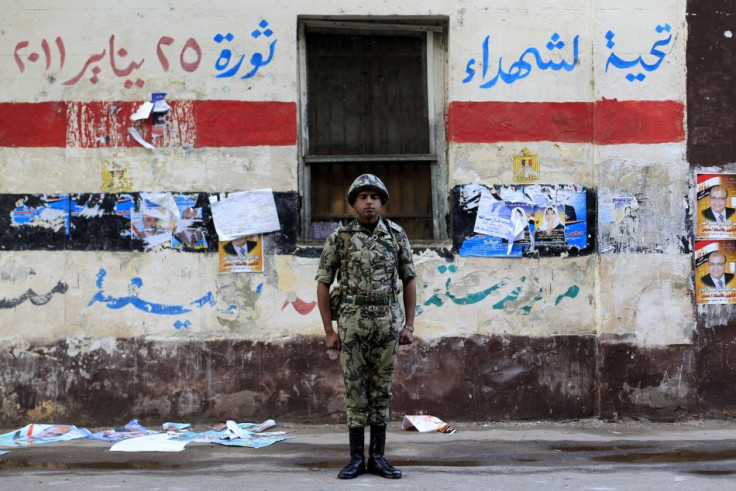Egypt’s Presidential Elections: Who Are the Frontrunners?

Egyptians have begun casting their votes to elect the first president since the fall of former leader Hosni Mubarak. The ballot will be the first real presidential election to take place in the country.
Egyptians can choose from a list of 13 candidates, after another 10 were disqualified. While the president will be elected without a constitution to clearly define the range of his powers and function, the election is set to play a major role in shaping the country's future.
IBTimes UK take a look at the main contenders.
Amr Moussa
Moussa is one of the most popular presidential candidates in Egypt. The 75-year-old was foreign minister under Mubarak and head of the Arab League. Moussa was tipped as a potential candidate as early as last year, following Mubarak's resignation on 11 February, 2011. His domestic and international experience makes him a safe choice for many Egyptians. His ties to the old regime are acting against him, however, even though he left government 10 years before the revolution took place.
Abdulmoneim Aboul Fotouh
Fotouh's strength is that he appeals to both Liberals and conservative Islamist factions in Egypt, making him a popular choice. An ex-Muslim Brotherhood candidate, 60-year-old Fotouh left the organisation ahead of the elections. Having been imprisoned under Mubarak, his strong anti-military stance and calls for multi-party democracy have helped him gain momentum since the Egyptian revolution. Supported by both secularists and Salafists, he sees himself as the candidate to unify Egypt. He has been criticised for occupying the middle of the road and for wavering between backing the merits of either religion or secularism, depending on his audience. Some observers fear that he might take a hardline religious stance if he is elected, especially since he has been endorsed by the ultra-conservative Salafist Nour party.
Mohammed Morsi
Morsi, an engineering professor who was educated at Cairo University and the University of Southern California, is the Muslim Brotherhood's Freedom and Justice party candidate. Morsi, 61, was not the Brotherhood's first choice but was chosen after multimillionaire businessman Khairat al-Shater was disqualified due to having served a prison sentence under the Mubarak regime. The Muslim Brotherhood came under fire for its decision to put forward a presidential candidate. After emerging from last year's legislative elections as the party with the most seats, the group had promised it would not seek the presidency. Despite this discrepancy, the Muslim Brotherhood remains a grassroots organisation with strong support in Egypt.
Ahmed Shafiq
Shafiq, 71, started his career in the air force and became head of the Egyptian aviation authority, before being promoted to the role of prime minister by Mubarak just before he resigned last year. While Shafiq is not seen as one of the most corrupt figures from the old regime, he still receives strong backing from the military. Islamists and Liberals have both threatened to hold protests if he is elected, because he is widely perceived to be as a remnant from the Mubarack era.
Hamdeen Sabahi
Sabahi's Nasserist position makes him stand out from the other candidates. A proud populist and follower of former Egyptian leader Gamal Abdel Nasser's pan-Arab and socialist ideology, Sabahi, 57, received little attention at the beginning of the presidential race. His calls for equality, a minimum wage, free education and clearly defined stance on Egypt's relationship with Israel have made him a serious contender. He said he has campaigned in the name of all Egyptians, including the country's poorest, and has received support from some of the revolution's youth movements.
How will the elections work?
There are up to 52 million eligible voters in Egypt. Egyptians have two days to vote, on 23 and 24 May, and can choose from a list of 13 candidates. If no candidates win an outright majority, the two candidates with the most votes will compete again in a run-off vote on 16 and 17 June. The president is due be inaugurated in office on 1 July, when the military is expected to stand down and hand over power to the country's new leader.
© Copyright IBTimes 2025. All rights reserved.





















